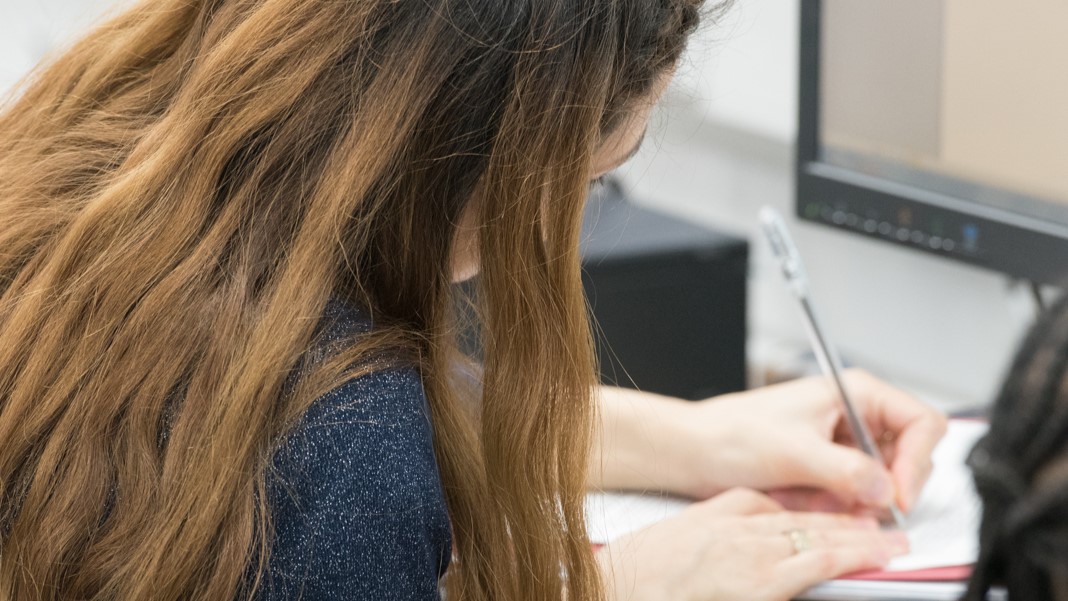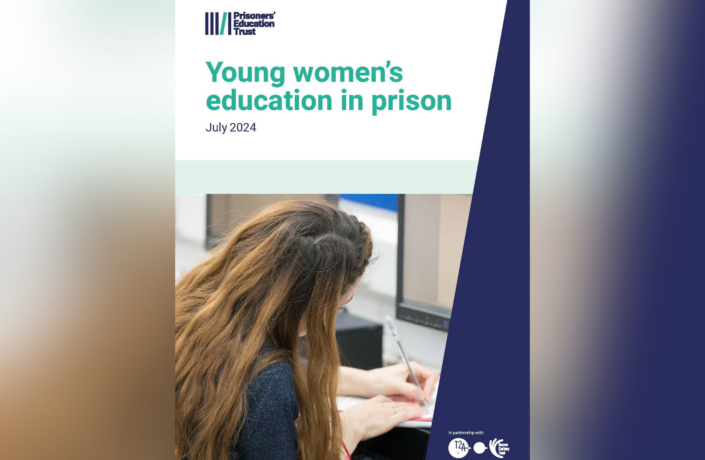
A new report, published by Prisoners’ Education Trust (PET), demonstrates the powerful role education plays for young women in prison and on release.
The report, written by research and policy consultant Katy Swaine Williams, draws together the experiences of eight young women – aged 18 to 24 – who have spent time in prison and explores their relationship with education and work.
The report shows that having access to the right opportunities in prison can offer satisfaction and a sense of pride and achievement, while also providing a valuable sense of purpose and a distraction from worries.
23 Jul 2024 | Prisoners' Education Trust (PET) | Policy | Report | PDF | 669.21KB
Young women’s education in prison
This report, written by research and policy consultant Katy Swaine Williams, draws together the experiences of eight young women - aged 18 to 24 - who have spent time in prison and explores their relationship with education and work. It demonstrates the powerful role education plays for young women in prison and on release.
The young women interviewed for the report had experienced a range of issues including childhood trauma, domestic abuse and mental health issues and shared their worries and fears. Despite these challenges, each of the participants described past achievements in education, employment and family life of which they were proud, and talked about their aspirations for the future.
Education, employment and other purposeful activities can help young women to envisage a positive future after their release and offer a practical stepping stone towards further study or employment.
Read this blog by the report’s author
The report makes a series of recommendations to ensure that every young woman can experience these benefits – including the need for tailored, gender-informed support and education provision for young women in the criminal justice system, an increased use of ROTL (Release on Temporary Licence), and the collection and publication of data on young women’s educational needs and progress in prison.
With this report PET urges the Ministry of Justice to renew its efforts to produce a Young Women’s Strategy, first announced in 2021. This should be developed through co-production with young women and should include a distinct focus on education, employment and other purposeful activity.
The research was funded by Barrow Cadbury Trust which runs the Transition to Adulthood (T2A) programme. Laurie Hunte, Criminal Justice Programme Manager at the Trust, said:
This report by PET shines a light on the education provision for young adult women in custody. Our research at T2A shows that young adult women have very specific needs. I would like to thank the young women who took part, it shows how varied and complex their experiences are.
This report will help the Prison Service understand and deliver education and purposeful activities to this very important but underserved group of women. The forthcoming Young Women’s Strategy is an important opportunity to develop age-appropriate support and reduce the barriers that the young women articulate in this report.
The research was also endorsed by Women in Prison and Agenda Alliance.
Echoing the need for a Young Women’s Strategy, Women in Prison said:
By the time women are in prison, they’re likely to have been let down by the system again and again. PET’s report highlights how structural inequalities and barriers faced by young women not only reduced their chances of staying in education, but also played a large part in them being swept into the criminal justice system.
Education is a cornerstone to building a life after prison, and so we support PET in urging the government to co-produce a young women’s strategy to address barriers to all young women’s participation in education.
Jess Southgate from Agenda Alliance said:
Agenda Alliance’s own research has highlighted that a lack of appropriate trauma- and gender-responsive support puts young women in prison at significant risk; in particular, this age group experiences some of the worst levels of self-harm of the entire prison population.
PET’s report shows how crucial opportunities for education and meaningful activity are for young women in prison, many of whom are struggling to cope. It evidences the important role education can play in developing young women’s self-worth and the skills they need to help prevent long-term cycles of harm.
We urge the Ministry of Justice to act on its recommendations, and push forward a Young Women’s Strategy so young women in contact with the criminal justice system are offered the age-, gender-, trauma-, and culturally- responsive provision they desperately need.
Donate to PET and help people in prison find a new direction. You can also sign up to our email newsletter.

